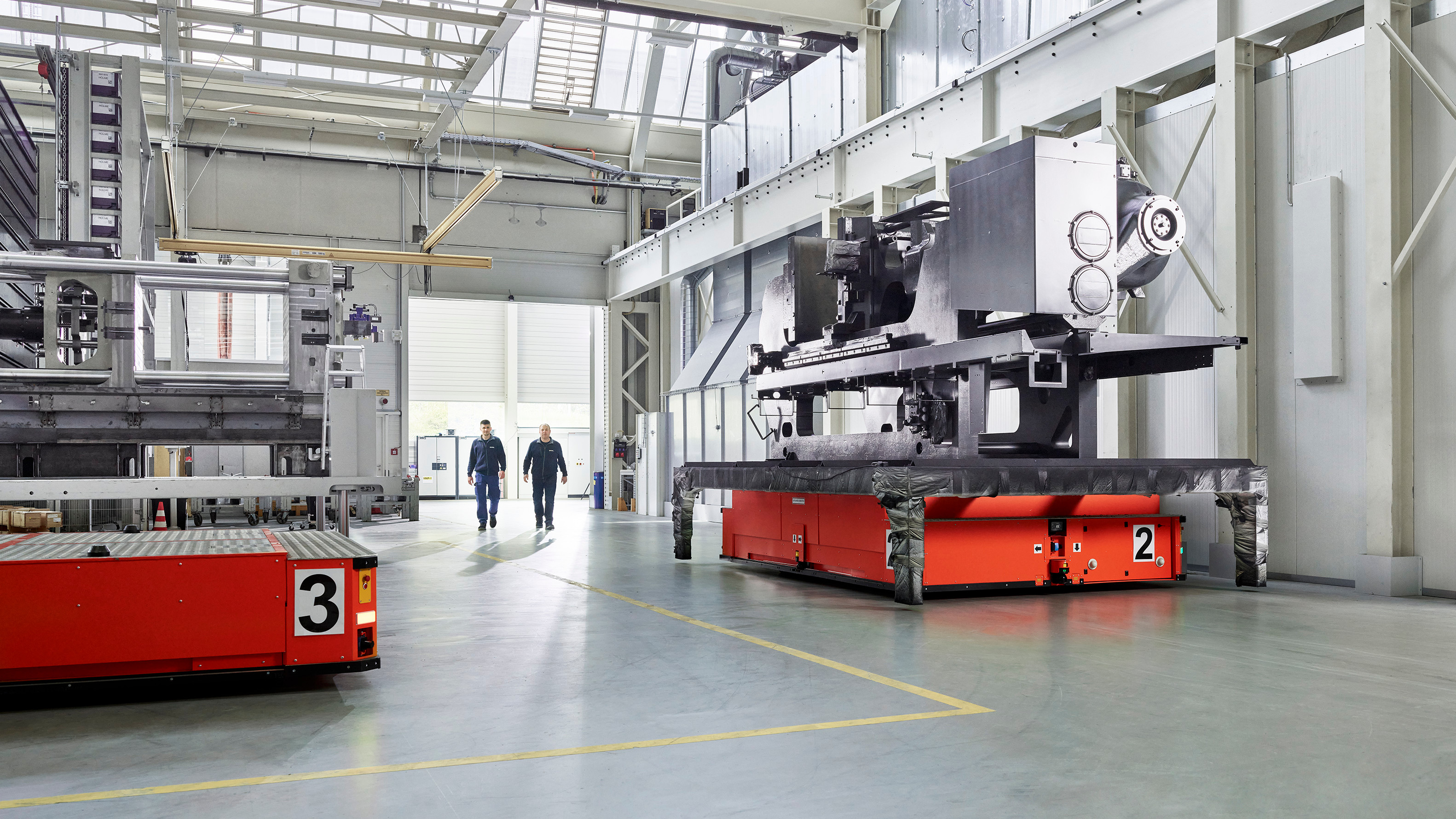

Consumer expectations of companies are rising. Companies are increasingly forced to produce a higher number of product variants, while product life cycles are becoming shorter and quantities are decreasing. For companies, these developments mean increasing complexity in their products and in their production and logistics systems. In order for companies to remain competitive in the long term, the increasing complexity must not have a negative impact on their profitability or sustainability. Reinforcement learning, a class of machine learning methods that rely on the principle of trial and error, is suitable under certain conditions for finding optimal strategies for controlling complex and dynamic systems.
Catherine Laflamme, Fraunhofer Austria, Project leader

Attention to reinforcement learning has increased steadily in recent years. Important breakthroughs have been made in basic research and the potential applications are becoming increasingly clear. Reinforcement Learning, as an essential element of systems such as AlphaGo, first revolutionised the gaming world and is now poised to permanently change other areas, from robotics to the chemical industry and finance to the intelligent vehicle systems dealt with in REINFORCE. The partners involved in the project see reinforcement learning as having disruptive potential. Reinforcement learning is no longer only high on strategic research roadmaps, but is also increasingly playing an important role in corporate digitisation strategies.
REINFORCE evaluates the potential of reinforcement learning as a solution approach for particularly challenging control problems. On the one hand, the project consortium is concerned with the technical aspects of reinforcement learning, i.e. with the development of algorithms that are tailored to the challenges of real-life scenarios.
On the other hand, the human factor and operational aspects are also included. Special attention is paid to the explainability and trustworthiness of results, the comprehensibility of what is learned for humans and the question of how the technology can best be integrated into existing control processes.
To solve steering problems, such as those addressed in REINFORCE, the following procedure is followed:
Agents learn how certain decisions affect the context and the achievement of the goal. Decisions that contribute to achieving the goal are rewarded.
Two pilot implementations are being realised with a focus on the application area of intelligent vehicle systems. In addition to a higher performance of the systems, a reduction of the manual effort in control by up to 50% is expected. The performance of the approach will be evaluated using real system data and compared with established approaches. The findings can serve as a guideline and facilitate the transfer of reinforcement learning into practice - not only in the field of intelligent vehicle systems, but generally for solving challenging control problems.
The approach is implemented and evaluated in two complementary use cases in the field of intelligent vehicle systems. Established approaches are increasingly reaching their limits both in the control of the powertrain of passenger cars and in the control of automated guided vehicles.

Optimisation of the powertrain at Bosch (Photo: Bosch Engineering)
Powertrains are made up of a large number of interdependent components. As complexity increases, so does the challenge of achieving the best possible control. Sven Dominka, responsible for research and innovation at Bosch Engineering in Vienna, sees potential to further increase the efficiency of modern powertrains.
„Reinforcement learning promises not only an improvement in control, but also a reduction in development effort. REINFORCE is supposed to help us better understand how reinforcement learning can be used in practice,“ says Sven Dominka.
Engel Austria uses several AGVs in its flow assembly to transport products from one assembly station to the next. The control system currently works via a programmed set of rules that can become very complex and does not deliver optimal results. When changes are made to the process, adaptation is currently extremely time-consuming.
„We want to look into the topic of reinforcement learning in order to be able to understand and optimise the complex interaction between people and machine,“ emphasises Dominik Pfeiffer-Vogl, Assembly Manager at Engel Austria.

Automated guided vehicle at Engel Austria (Photo: Engel Austria)
The partners involved in the project consider reinforcement learning to have disruptive potential. Reinforcement learning is no longer only at the top of strategic research roadmaps, but is also increasingly playing a role in corporate digitalisation strategies. Close coordination with other activities in the field of reinforcement learning in Austria is ensured via the RL Community of AI Austria, which is led by Catherine Laflamme, among others.
If you have a question about the project or are interested in working with us, please do not hesitate to get in touch.